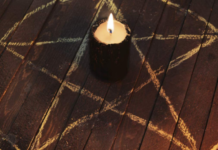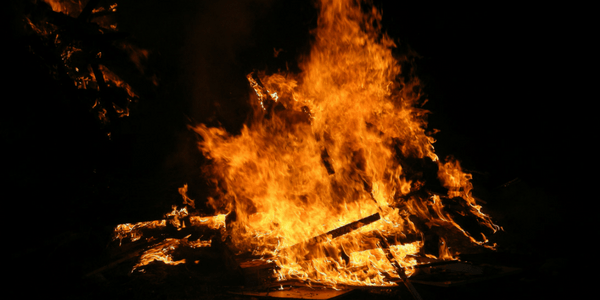 It’s an interesting time for popular culture and the occult. Although the weird and the supernatural have always played a part in pop fiction from as far back as the first novels, the wide dissemination of mass media in the last century or so has grown and mutated such tales drastically. Magically-tinged fantasies of all kinds have been enjoyed by literally billions of people. Occulture is now part of the mainstream, and this has had a feedback effect.
It’s an interesting time for popular culture and the occult. Although the weird and the supernatural have always played a part in pop fiction from as far back as the first novels, the wide dissemination of mass media in the last century or so has grown and mutated such tales drastically. Magically-tinged fantasies of all kinds have been enjoyed by literally billions of people. Occulture is now part of the mainstream, and this has had a feedback effect.
The sociologist Adam Possamai has noted the influence of pop culture on the actual religious practices of the modern world, and has written extensively about this (you can get a good idea of his angle from this interview with the excellent religion and pop culture blog Theofantastique). He is especially interested in the modern (or even postmodern) beliefs which are either influenced by, or directly drawn from, fictional sources – everything from sci-fi inspired cults such as The Church Of All Worlds (which was a huge influence on American Paganism) to Cthulhu worship and the practitioners of Jedi-based spirituality. He calls these beliefs hyper-real religion, and it seemed a useful perspective to draw on… and I just couldn’t resist the pun for the title.
Perhaps inevitably, there is also the opposite – the hypo-real religious current, which either suborns or directly opposes pop culture. This can range from the burning of books to the creation of blatantly propagandist works such as the recent wave of Christian-sourced films hitting mainstream cinemas: The Conjuring, God’s Not Dead and the upcoming Heaven Is Real.
These widely-told tales draw on old myths and legends, restoring, rewriting and transmuting them, even bringing genuinely new stories into the world. They then in turn influence those who hold those myths dear and how they express them. And the circle turns…
There’s an awful lot of occulture works to consider these days, colonising the mainstream of entertainment like never before. Biblical epics such as Noah and Ridley Scott’s upcoming version of the story of Moses do battle for blockbuster status with the continuing rise of Marvel’s superhero movies (from the science-as-magick Asgard of Thor to the upcoming, and very welcome, Doctor Strange movie). The wave of exorcism-based films (such as the Paranormal Activity and The Last Exorcism series, the aforementioned The Conjuring and proposed sequels) shows no sign of abating.
On the TV, shows with zombies (The Walking Dead), magick and dragons (Game Of Thrones) are bringing huge audiences and critical acclaim alike. Shows like Supernatural and Grimm continue to pull in loyal viewers, to say nothing of the break-out success of the daft but enjoyable Sleepy Hollow, and several new shows promise even more occult flavours to come. We are even going to get the patron saint of street magicians, DC Comics’ John Constantine, on TV… and, thankfully, he will be a blond English mage this time!
The comic book realm has always had a lot of occult in its four-coloured pages, and this shows no sign of abating. From such works in the Big Two publishers as the recent revival of Moon Knight by Warren Ellis to independently published series such as God Is Dead and the excellent Witch Doctor, the funny pages continue to bring us ample weirdness.
Urban fantasy novels and paranormal romance fiction (often, but not inevitably, overlapping) have become incredibly popular with their enthusiastic fandoms riffing even further off of the stories they hold dear. And that’s not even mentioning the huge impact of young adult entries into the genre…
Although talking about a Golden Age of anything is a problematic idea, it’s certainly true that we are in a particularly rich time for representations of the occult in pop culture, and viewing these exciting (and occasionally frustrating!) works through the hyper-real religious filter has, I think, an advantage. With that perspective in mind, we can perhaps draw more useful and relevent inspiration from these tall tales which are the common mythologies of our times while separating the wheat from the chaff, the powerful from the pointless… the hyper-real from the hype.
Image credit: Margaret Shear








